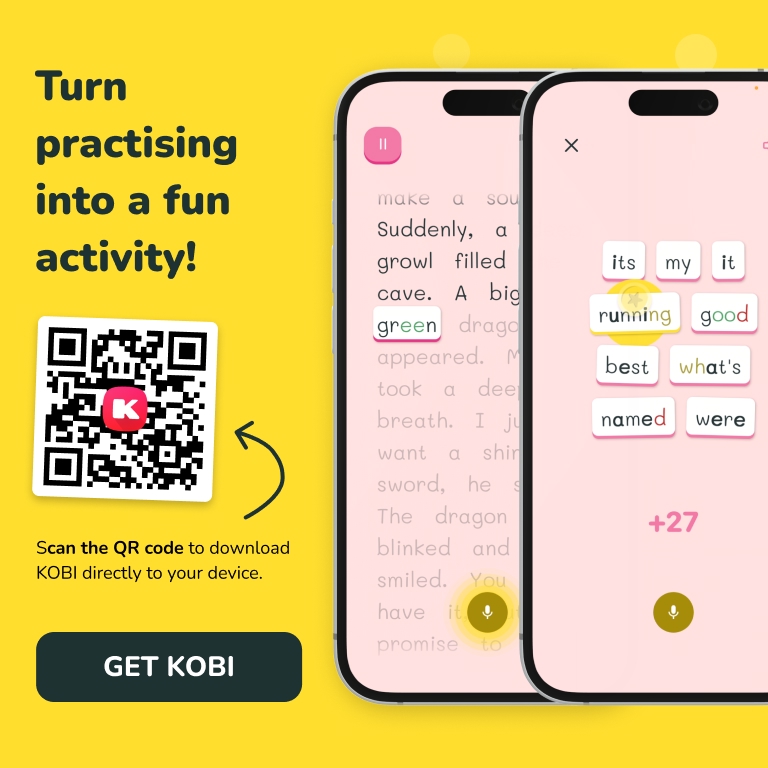Summary: What You’ll Learn in This Article
- Why children guess words and what it means for their reading development
- How the Science of Reading emphasizes decoding over guessing
- How KOBI tools like TapTap, Pictionary, Snap-a-Story, and ThinkTalk support accurate reading
- Simple, positive ways to replace guessing habits with decoding skills
- Reflection prompts to help parents spot and address guessing patterns
Why Kids Guess Words (And Why It Matters)
Ever hear your child read “horse” for “house” or “went” for “want”? Guessing is common – it happens when kids rely on pictures, first letters, or context instead of sounding out the word.
While this is natural in early reading stages, sticking with guessing can hold back progress. True fluency comes from connecting sounds to letters – not from making educated guesses.

The Science of Reading on Guessing
Research in the Science of Reading shows:
- Strong readers use phonics and decoding to identify unfamiliar words
- Guessing skips essential sound-letter mapping practice
- Consistent decoding leads to automatic word recognition, freeing up brainpower for comprehension
The goal isn’t to stop mistakes – it’s to replace guessing with tools and strategies that promote accurate reading.

How KOBI Helps Replace Guessing With Real Skills
Step 1: Pause and Tap
When your child guesses a word, KOBI’s TapTap feature reads it aloud instantly. Two quick taps = immediate support without breaking the reading flow.
Step 2: See the Meaning
With Pictionary, tricky words come with a kid-friendly definition, example sentence, and bright image – making them stick in memory.
Step 3: Break It Down
If a word is still tough, KOBI highlights syllables and guides them through decoding step-by-step.
Step 4: Practice Without Pressure
WordBlaster revisits words they struggled with in a game format – repetition wrapped in fun.
Step 5: Review & Personalize
Guessed words are stored in WordVault for easy review. You can also use Snap-a-Story to create fresh, personal reading material from your own photos – giving your child more chances to practice those tricky or related words in a fresh, engaging way.
Step 6: Think It Through
Finish with ThinkTalk – a short, friendly discussion about the story. Talking through meaning reinforces that reading isn’t just about saying the words – it’s about understanding them.
Tips for Parents: Address Guessing Without Stress
- Use prompts like: “Let’s look at all the letters together.”
- Avoid “just try harder” – instead, model tapping the word in KOBI
- Celebrate accuracy: “You sounded that out perfectly!”
- Revisit guessed words in WordVault or Snap-a-Story for gentle reinforcement
- Ask: “What helped you figure that word out this time?”
Why Homeschoolers Love KOBI’s Decoding Support
- Redirects guessing into learning moments
- Tracks tricky words automatically for easy review
- Combines visual, audio, and interactive supports
- Keeps reading positive and pressure-free

Reading Practice Doesn’t Have to Be a Struggle
Guessing isn’t a bad habit – it’s a signal that your child is still developing decoding skills. With KOBI, you can turn those moments into growth, one tap and one conversation at a time.



